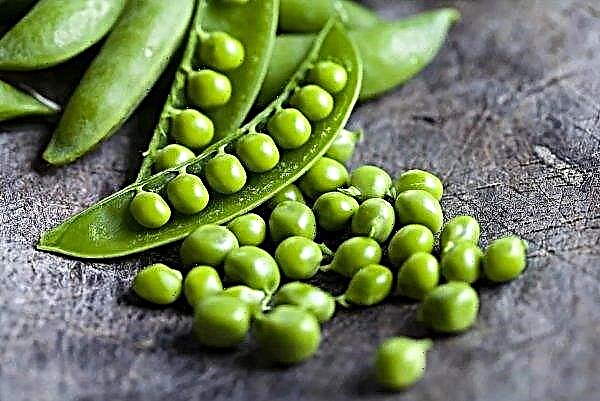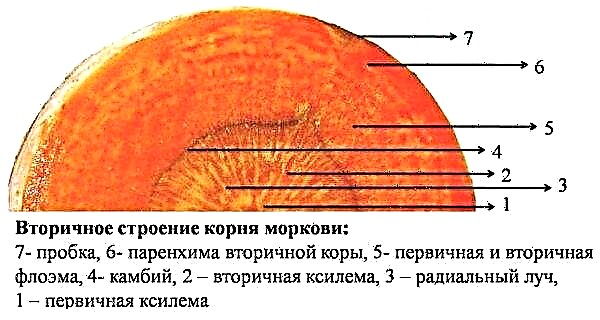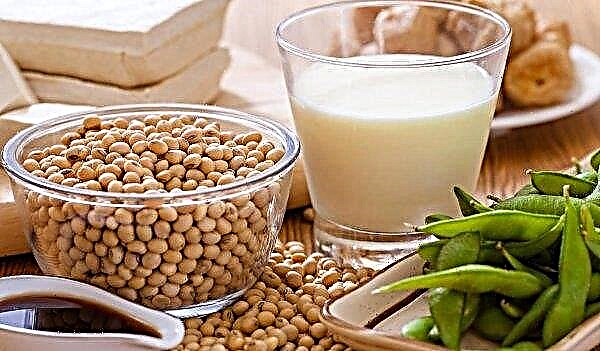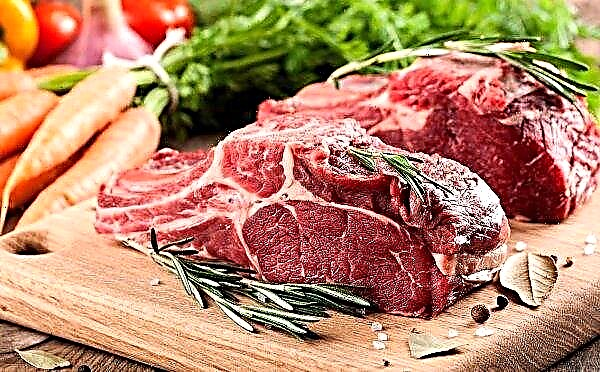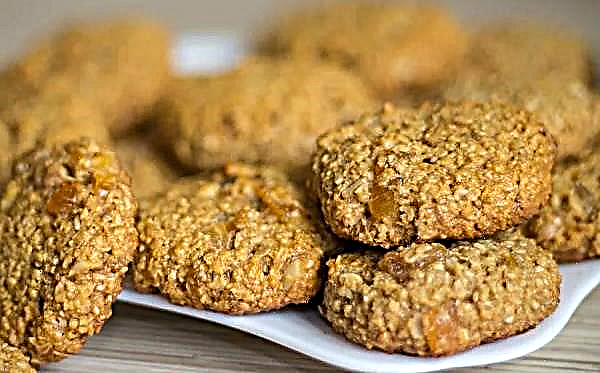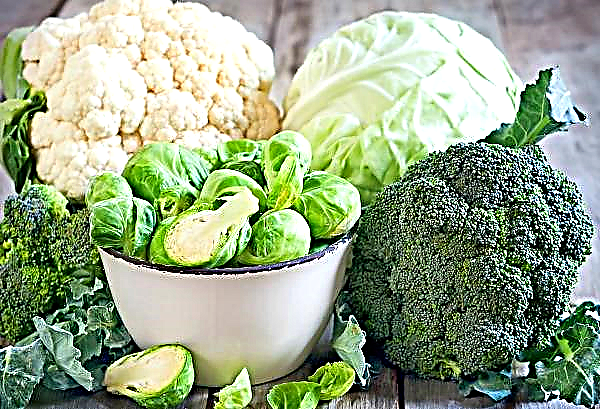During breastfeeding, it is very important for mom to review her own menu. Products included in the diet of a breast-feeding woman can both benefit the child and harm him. The issue of introducing white cabbage to the menu of a young mother causes a lot of controversy, which worries mothers, since this vegetable is popular and inexpensive.
Fresh white cabbage: composition, useful properties
Cabbage is a two-year-old culture from the cruciferous family. This is one of the most common cultures in Russia, which is striking in its combination of taste and nutrients that are necessary for a healthy body. Also, this product is able to overcome various diseases, which has contributed to the enrichment of traditional medicine with numerous recipes since ancient times.

The nutritional value per 100 g of fresh leaves of a vegetable is as follows:
- carbohydrates — 18.8 g;
- fats - 0.1 g;
- proteins - 7.2 g;
- calories - 28 kcal.
- vitamin A - 2 mcg;
- vitamin C - 45 mg;
- Vitamin E - 0.1 mg;
- Vitamin B1 - 0.03 mg;
- Vitamin B2 - 0.04 mg;
- Vitamin B6 - 0.1 mg;
- Vitamin B9 - 22 mcg.

100 g of the product in question contains many useful trace elements, the main of which are:
- boron - 200 mcg;
- potassium - 300 mg;
- calcium - 48 mg;
- sulfur - 37 mg;
- chlorine - 37 mg;
- phosphorus - 31 mg.
- Calcium strengthens the skeleton, and also has an anti-inflammatory effect.
- Zinc improves soft tissue regeneration and also helps prevent diabetes.
- Sulfur inhibits the aging process and has an anti-allergic effect.
- Potassium helps normalize heart rhythm.
- Magnesium regulates the functioning of the nervous system, and also normalizes muscle activity.
- Iron strengthens the immune system and has an antibacterial effect.
- Iodine helps to activate brain activity.
- Phosphorus is essential for good bone and tooth growth.
- Folic acid is important for the rapid development of the body.
- Fructose helps stabilize blood sugar.
- Pantothenic acid is necessary for the formation of antibodies to strengthen immunity.

White cabbage has many such beneficial properties that are necessary for women:
- Tartanic acid, which is found in fresh leaves of white cabbage, prevents the deposition of fats under the skin, as this acid resists the conversion of carbohydrates into fatty acids. Thus, this vegetable will be useful to women who are struggling with excess weight.
- The product in question also contains sulforaphane, which is an excellent prevention of the appearance of cancer cells in the mammary glands.
- Folic acid, which is found in white cabbage, regenerates and renews the cells of the body, which helps to preserve the youth of the skin and hair of women.
Did you know? Medical studies claim that eating white cabbage reduces the risk of cancer cells in the mammary glands by 15%.
- Since ancient times, people have used this product in traditional medicine for such medicinal purposes:
- elimination of pain in the joints and stomach;
- liver treatment;
- skin regeneration after burns;
- elimination of edema; diabetes treatment;
- resumption of voice in case of its breakdown;
- bronchitis treatment;
- skin condition improvement.

Cabbage with lactation, can I use a nursing mother
Many mothers are interested in the question of whether it is possible to enter this product in their menu. Of course, this vegetable should be eaten by young mothers, if it is correctly selected and prepared. The product can replace the intake of various multivitamin preparations, since it contains a huge amount of useful substances.
A very important advantage when choosing this vegetable is that it enriches the body with the necessary substances without increasing body weight. White cabbage is characterized by a low calorie content, which suggests that the product can be consumed in the required quantities without fear of gaining extra pounds. Since the culture in question contains a large amount of fiber, it helps regulate the functioning of the intestines, which will help prevent constipation, which is a fairly common problem in women in the first months after childbirth.
Pediatricians strongly recommend white cabbage to nursing mothers, as this vegetable contains folic acid, which has a beneficial effect on the health of the baby’s nervous system. Therefore, the culture in question is important for women who are breastfeeding in order to protect the child from defects in the nervous system, as well as from anemia.
Due to a problem with excessive gas production in the intestines, which contributes to colic in the baby, it is advisable to start taking white cabbage in a prepared form. A mother who is breastfeeding can eat stewed or boiled cabbage, observing the correct preparation of the product.
Important! It is not advisable to cook this vegetable for a long time, since after a long heat treatment many vitamins are destroyed.
Fresh product promotes bone health and immunity. Thus, vitamins C and K, which are contained in the vegetable, are necessary for the baby to normal formation of the skeletal system.
Calcium, iron, manganese, magnesium, potassium and phosphorus are very important for an infant to regulate heart rate and blood pressure. Regular use of this vegetable while breastfeeding will reduce the risk of anemia. Iron, as an integral part of this vegetable, is simply necessary for babies who are born prematurely, since there is a big risk for them to develop anemia. Washing a vegetable before eating guarantees the health of both mother and baby. Every lactating mother must remember that the product must be thoroughly washed and well prepared. This is due to the fact that white cabbage can serve as a carrier of various microorganisms, because of which there is a risk of foodborne diseases. Do not forget about pesticides and fungicides, which increase the risk of bacterial contamination of the product.
Washing a vegetable before eating guarantees the health of both mother and baby. Every lactating mother must remember that the product must be thoroughly washed and well prepared. This is due to the fact that white cabbage can serve as a carrier of various microorganisms, because of which there is a risk of foodborne diseases. Do not forget about pesticides and fungicides, which increase the risk of bacterial contamination of the product.
Pickled cabbage during breastfeeding is also considered a safe dish, in addition, it has many advantages. This cabbage contains more iron and folate, vitamin C, fiber. Due to the high sodium content, salted cabbage can cause thirst in both mother and baby. In addition, such a dish can change the taste of milk.
Did you know? Caraway seeds in sauerkraut can prevent bowel discomfort and bloating.
A small amount of sauerkraut during lactation can even be beneficial, since the lactic acid bacteria contained in it will contribute to the normalization of the intestinal flora of the child, as well as saturate the body with a large amount of vitamin C.
 Any dishes containing white cabbage can be safely introduced into the diet of a nursing mother only when the baby is not bothered by colic.
Any dishes containing white cabbage can be safely introduced into the diet of a nursing mother only when the baby is not bothered by colic.
The considered culture during breastfeeding is not allowed if the baby has an allergic reaction, although allergies to this product are quite rare, but you should not discard the fact of a likely allergic reaction.
When you can eat fresh cabbage while breastfeeding
White cabbage, like many other products, doctors recommend starting to enter not in raw, but in cooked form. Do not rush with fresh vegetables. After 4 weeks from the moment of birth, the mother can try a small amount of fresh cabbage leaves. Most pediatricians are of the opinion that introducing this product in the raw form on the mother’s menu costs from 3-4 months.
Important! It is necessary to monitor the condition of the child during the day. Constipation or diarrhea, skin rashes - this is a signal of the body about food intolerance or allergies, which is a reason to postpone the product for 3–6 months.
A baby 3 months old or older has a more formed digestive system, so pediatricians advise introducing raw vegetables into this period of time. It is very important to consider the amount of food eaten. It is strongly recommended that you start with 50 g. If no adverse reaction has occurred within 1-2 days, then the serving can be increased to 200–250 g per day. White cabbage should be consumed no more than 3 times a week.

Is it possible to eat cabbage in the first month after the birth of a baby
Pediatricians unanimously argue that it is not necessary to introduce this product into the diet of a nursing mother in the first month after childbirth, either raw or cooked.
- When asked by mothers why this product should not be used in the first month, one can answer with the following facts:
- A newborn baby still has an unformed digestive system, and such a product can cause many reactions (from colic to diarrhea or vomiting).
- The gastrointestinal tract of a young mother in the first month after birth is rather weak, and the abdominal organs of the mother are still in an displaced state, so this product can cause discomfort, bloating or diarrhea.
It should be noted that in the first month after giving birth, mom can use white cabbage, although not in her menu, but in various homemade folk recipes. For example, with lactostasis, when the normal outflow of milk from the breast is disturbed, a woman can feel hardening, pain and a lot of unpleasant sensations. In this case, it is necessary to make a warm compress for the breast for 2-3 hours from a leaf of vegetable heated in a water bath. Also, the leaf is able to remove inflammation from poorly emptied mammary glands.

Thus, white cabbage is a storehouse of useful substances that are necessary for a healthy body. The mother’s diet should be diversified with this product, only it should be administered no earlier than 3-4 months after the birth, as it can adversely affect the well-being of the child.



